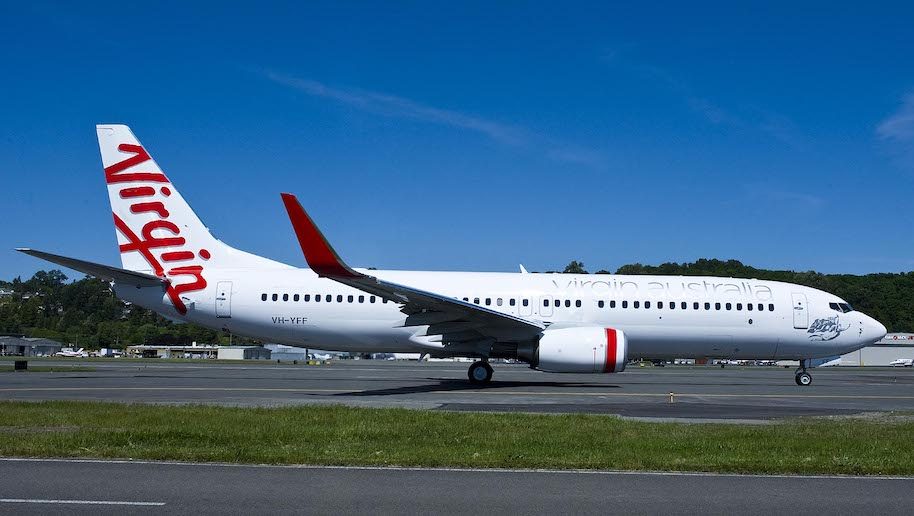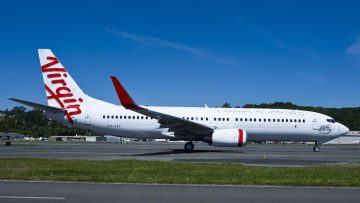
Virgin Australia has unveiled a relaunch plan under its new owner Bain Capital.
As part of the new plan, the airline will operate only Boeing 737s, cut 3,000 jobs, and scrap its low-cost carrier Tigerair.
The airline, which went into voluntary administration in April, was bought by US private equity group Bain Capital in June.
Virgin Australia said in a statement that it plans to become “stronger, more profitable and competitive” airline as it exits voluntary administration.
The Australian carrier says it will remove all of its ATR, Boeing 777, Airbus A330 and Tigerair Airbus A320 aircraft as it moves to an all-Boeing 737 fleet. The airline’s regional and charter fleet will remain.
About 3,000 staff members will lose jobs under the new plan. Virgin Australia Group CEO and managing director Paul Scurrah said in a statement that the airline plans to employ around 6,000 people “when the market recovers, with aspirations for up to 8,000 in the future”.
Bain Capital’s plans for the airline will also see the end of of the Tigerair brand, which the airline says “will be discontinued in the market as there is not sufficient customer demand to support two carriers at this time”.
Tigerair Australia’s Air Operator Certificate (AOC) will be kept to support the option to operate an ultra-low-cost carrier in the future when the domestic market can support it, says the airline.
Long-haul international flights will continue to be suspended until global travel demand recovers. The airline says “given current international travel restrictions”, it will continue to suspend flights to Los Angeles and Tokyo with the intention to restart flights and grow long-haul flights “when sufficient demand returns”.
Virgin Australia Group CEO and managing director Paul Scurrah said in a statement posted on the airline’s website that many Australian airports are recording passenger numbers less than three per cent of last year as the aviation and tourism sectors continue to face uncertainty amid the Covid-19 pandemic.
“Demand for domestic and short-haul international travel is likely to take at least three years to return to pre-Covid-19 levels, with the real chance it could be longer, which means as a business we must make changes to ensure the Virgin Australia Group is successful in this new world,” he said.
The airline said while it will not turn into a budget carrier, it seeks to become “the best value carrier in the market”.
As part of the company’s future network plans, the carrier says it will continue to offer its customers “frequent capital city connections” and services to leisure and regional markets.
The airline will also maintain a network of lounges in “key domestic locations” with a plan to re-open when demand returns.










